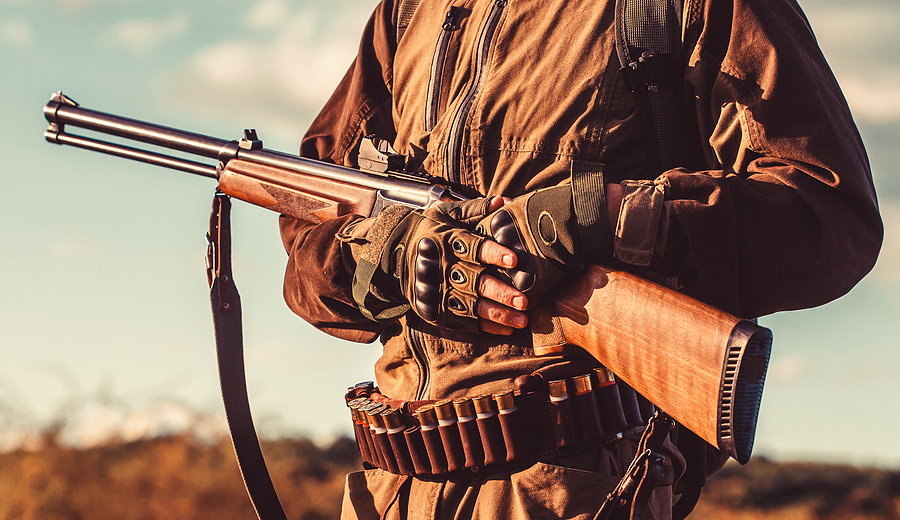As of September 1, 2021, a new Texas state law regarding permitless carry allows anyone over 21 who can legally own a firearm to carry it concealed or openly in a holster in public. The law does not restrict to belt or shoulder holsters. Texans can use belly bands, waistband holsters, ankle holsters, pocket holsters, thigh holsters, etc.

The passage of this law is the first time that permitless carry has been allowed in Texas since Reconstruction. Prior to now, individuals needed to obtain a License to Carry (LTC). To get the LTC, applicants were required to submit fingerprints, complete four to six hours of training, and pass a written and shooting proficiency test.
What are the Exceptions to the Permitless Carry Law?
The new law created a category of individuals who can legally possess firearms but cannot carry handguns outside of their property or vehicle without an LTC. The category of individuals who are still not allowed to carry a gun without a license includes anyone convicted of any of the following misdemeanors in the previous five years:
• Assault causing bodily injury,
• Deadly conduct,
• Terroristic threat, and
• Disorderly conduct with a firearm.
If you have a criminal record, you should consult with a qualified criminal defense attorney to fully understand your rights under this new law. Unlawful carrying a weapon is a serious offense.
What are the Eligibility Requirements for Firearm Possession in Texas?
The new law does not change the eligibility requirements for gun possession in Texas. The nine categories of people that are prohibited from possessing firearms include anyone:
• Who has been convicted of a crime by imprisonment for more than one year;
• Who is a fugitive from justice;
• Who is an unlawful user of or addicted to any controlled substance;
• Who is mentally incompetent;
• Who is illegally or unlawfully in the U.S. or admitted to the U.S. under a nonimmigrant visa;
• Who the Armed Forces discharged under dishonorable conditions;
• Who has renounced their U.S. citizenship;
• Who is subject to a court order restraining the person from harassing, stalking, or threatening an intimate partner or child of the intimate partner; or
• Who has been convicted of a misdemeanor crime of domestic violence within the past five years.
With the passage of new law, Texas lawmakers raised the penalties for illegal weapons carried by felons and those convicted of family violence offenses.
Are Background Checks Required in Texas?
The laws regarding background check requirements when buying a firearm in Texas have not changed. If individuals buy from a licensed dealer, they still must go through a background check. However, background checks are not required for private gun sales.
In addition to background checks when buying a firearm from a licensed dealer, Texans must undergo a background check to receive an LTC. With the passage of the new law, a background check is not required to carry a firearm in public.
What Locations Are You Prohibited From Carrying Firearm in Texas?
The new gun law did not change where individuals are prohibited from carrying a firearm in Texas. These locations include:
• Schools;
• Polling places while voting is taking place;
• Courts and offices utilized by the court;
• Racetracks;
• Airports;
• Bars (includes any establishment that makes 51% or more of their income from sale or service of alcoholic beverages for on-premises consumption);
• Sporting events (high school, college, or professional);
• Correctional facilities;
• Hospitals;
• Nursing homes;
• Mental hospitals;
• Amusement parks; and
• Government meetings open to the public.
Private businesses can prohibit licensed and/or unlicensed carry by postage signage stating that it is not permitted. They also have the discretion to ban open carry but allow the concealed carry of handguns.
Are There Reasons to Still Get a License to Carry in Texas?
Even though it is now optional to get an LTC, there are reasons why some individuals would still want to do so. The three main reasons are:
1. You receive training through the licensing process;
2. You can carry your firearm into some locations where those without licenses cannot (i.e., university campuses with certain restrictions); and
3. You will need a Texas LTC if you visit a license-only state and want to carry your firearm.
Your Frisco Criminal Defense Attorney
If you have questions about Texas gun laws, you should reach out to an experienced criminal defense attorney. Texas gun laws are complicated, and it is important to be informed of your rights. Call Philip D. Ray today to schedule a consultation at 469-588-6770.
